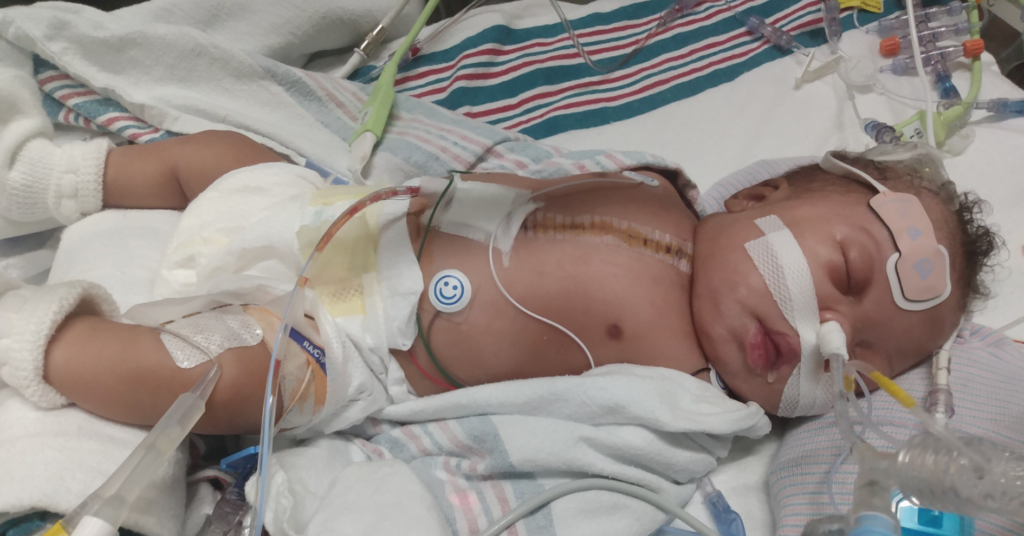Why Does Premature Birth Happen?

I went out with a couple of my school friends for dinner and one of my friends had a premature baby at 26 weeks. The baby is growing and thriving at 2 years old right now. However, she has speech delays issues and is unable to swallow without a tube.
Hence, I decided to do some reading and found out further about premature births, the risk factors and potential complications that a child may face in the near future and far future.
Also, sometimes there may be causes or risk factor for a baby to be born premature. This post will share further on the definition of premature birth, risk factors and complications related to this type of pregnancy.
A premature birth means a baby is born before the 37th week of pregnancy. A typical pregnancy lasts about 40 weeks.

A premature birth can be:
•Late preterm, born between 34 and 36 completed weeks of pregnancy.
•Moderately preterm, born between 32 and 34 weeks of pregnancy.
•Very preterm, born between 28 and 32 weeks of pregnancy.
•Extremely preterm, born before 28 weeks of pregnancy.

1. Physical Features of those born premature
The baby may have very mild to severe features of being born premature. Some of the features are:
•Features that are sharper and less rounded than a full-term baby’s features
due to a lack of cells that store fat
•Fine hair that covers much of the body
•Low body temperature, mainly right after birth in the delivery room
•Trouble breathing
•Feeding problems
•Small size with a larger head than the body
Most of the time, this babies will be placed in NICU to be cared after.
2. Risk Factors

Some risk factors linked to past and present pregnancies include:
•Pregnancy with twins, triplets or other multiples.
•A span of less than six months between pregnancies. It’s ideal to wait 18 to 24 months between pregnancies.
•Treatments to help you get pregnant, called assisted reproduction, including in vitro fertilization (IVF).
•More than one miscarriage or abortion.
•A previous premature birth.

Some health problems of mother that can raise the risk of premature birth, such as:
•Problems with reproductive organs such as uterus, cervix or placenta.
•Infections mainly those of the amniotic fluid and lower genital tract.
•Ongoing health problems such as high blood pressure and diabetes.
•External or internal injuries or trauma to the body

Lifestyle choices also can raise the risk of a preterm pregnancy, such as:
•Smoking cigarettes, taking illicit drugs or drinking alcohol often or heavily while pregnant.
•Being underweight or overweight before pregnancy.
•Becoming pregnant before the age of 17 or after 35.
•Going through stressful life events, such as the death of a loved one or domestic violence.

3. Complications
Being born too early can cause short-term and long-term medical problems. The birth weight of a child determines the complications faced.
In the first weeks, the complications of premature birth may include:

(i) Breathing problems
Premature babies may have trouble breathing due to being born with lungs that aren’t fully developed. It’s common for preterm babies to have pauses in their breathing called apnea. Most infants outgrow apnea by the time they go home from the hospital. However, some premature babies may need continuous oxygen to assist with their breathing.

(ii) Brain problems
A premature baby is at a high risk of brain bleeding. Most haemorrhages are mild and resolve with little impact. However, some babies may have larger brain bleed that causes permanent brain injury.

(iii) Temperature control problems
Premature babies can lose body heat quickly. They don’t have stored body fat similar to a full-term infant. If the body temperature drops too low, it can lead to hypothermia.

(iv) Digestive problems
Premature infants are more likely to have digestive systems that aren’t fully developed. This can lead to problems such as injury to the bowel lining wall.

(v) Blood problems
Premature babies are at risk of blood problems such as anemia and newborn jaundice. With anaemia, the body doesn’t make enough red blood cells. All new-borns have a slow drop in red blood cell count during the first months of life. But that drop is greater in premature babies.
(vi) Metabolism problems
Premature babies often have problems with metabolism. Some premature babies may have a low level of blood sugar. This can happen because premature infants often have smaller amounts of stored blood sugar than do full-term babies. Premature babies also have more trouble turning their stored sugar into more-usable, active forms of blood sugar.

(vii) Poor Immune system
It’s common for premature babies to have immune systems that aren’t fully developed. This can lead to a higher risk of illnesses and sepsis.

(viii) Heart problems
Some common heart problems that premature babies have are patent ductus arteriosus (PDA) and low blood pressure. PDA is an opening between two important blood vessels, the aorta and the pulmonary artery. This heart defect often closes on its own. However, without treatment it can lead to problems such as heart failure.
Long-term complications
Over the long term, premature birth may lead to health problems such as:

(i) Cerebral palsy
Cerebral palsy affects movement, muscle tone or posture. It can be due to an infection or poor blood flow. It also can stem from an injury to a new-born’s brain, either during early pregnancy or while the baby is still young.

(ii) Learning issue
Premature babies are more likely to lag behind full-term babies on growing milestones.

(iii) Vision problems
Premature infants may get an eye disease called retinopathy of prematurity. This happens when blood vessels swell and grow too much in the light-sensing tissue at the back of the eye, retina. Sometimes these overgrown vessels slowly scar the retina and pull it out of place. This condition is known as retinal detachment.

(iv) Hearing problems
Premature babies have a higher risk of losing some hearing.

(v) Dental problems
Preterm babies may be more likely than full-term babies to have defects with their enamel. Infants born prematurely may also may be more likely to have teeth that take longer to develop.

(vi) Ongoing health issues
Premature babies are more likely to have long-term health issues than are full-term infants. Illnesses, asthma and feeding problems are more likely to develop or linger. Premature infants also are at higher risk of sudden infant death syndrome (SIDS).
Reference:
1. Preterm birth. World Health Organisation (WHO).







